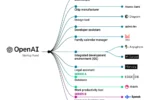Apple Intelligence is set to revolutionize the way users interact with technology, enhancing the capabilities of the Apple AI suite. With exciting new updates on the horizon, Apple is expanding language support for Siri, bringing advanced AI features to a global audience. In a recent announcement, CEO Tim Cook revealed that this powerful AI will soon speak French, German, Italian, Portuguese, Spanish, Japanese, Korean, and simplified Chinese, alongside tailored English versions for India and Singapore. These Siri updates will enable users to engage with their devices in multiple languages, making technology more accessible than ever. As the rollout begins in April 2024, Apple Intelligence promises to redefine user experience across diverse linguistic backgrounds.
The introduction of Apple Intelligence marks a significant milestone in Apple’s commitment to advancing artificial intelligence solutions. This innovative AI platform is designed to enhance user engagement through localized language support, ensuring that Siri can assist users effectively in various regions. Apple CEO Tim Cook has outlined plans to extend capabilities beyond the initial launch, which only catered to English speakers. With the latest updates, Siri is poised to operate in numerous languages, reflecting Apple’s strategy to integrate AI into everyday life worldwide. As we anticipate these developments, it’s clear that Apple’s AI suite is evolving to meet the diverse needs of its global user base.
Expansion of Apple Intelligence: Multilingual Support
Apple’s AI suite, known as Apple Intelligence, is set to enhance its capabilities with the addition of multiple languages. This expansion will allow users across the globe to access AI-driven features in their native languages, including French, German, Italian, Portuguese, Spanish, Japanese, Korean, and simplified Chinese. This move not only broadens the potential user base but also aligns with Apple’s commitment to inclusivity and accessibility in technology.
The anticipated rollout, scheduled for April, marks a significant milestone for Apple as it transitions from a primarily English-speaking platform to a more diverse linguistic environment. As Apple CEO Tim Cook highlighted during the Q4 2024 earnings call, the initial version of Apple Intelligence was limited to U.S. English. However, the updates have progressively included localized versions, catering to users in regions such as Australia, Canada, and South Africa, thereby enriching the overall user experience.
Siri Updates: Revolutionizing Language Support
Among the exciting developments in the Apple Intelligence suite is the upcoming update for Siri. This new version is designed to comprehend on-screen context, making interactions with the virtual assistant more intuitive and efficient. Users will soon benefit from enhanced language support, enabling Siri to understand and respond in various languages, thus eliminating language barriers.
With the integration of AI in multiple languages, Siri’s functionality will expand significantly, allowing users from different linguistic backgrounds to engage with the technology seamlessly. The updates not only reflect Apple’s strategic push towards a more global presence but also demonstrate the company’s dedication to improving user satisfaction through smarter, more responsive AI capabilities.
Apple’s Strategic Vision Under Tim Cook
Under the leadership of CEO Tim Cook, Apple has consistently focused on innovation and user-centric solutions. The introduction of Apple Intelligence and its forthcoming multilingual capabilities exemplifies this strategic vision. Cook’s emphasis on expanding Siri’s language support highlights Apple’s commitment to staying ahead in the competitive AI landscape.
Tim Cook’s proactive approach during the Q4 2024 results call reveals Apple’s intent to meet the evolving demands of a global audience. By integrating advanced AI features and expanding their language suite, Apple positions itself as a leader in the AI sector, reinforcing its reputation for technological excellence and customer-centric design.
The Future of AI in Apple’s Ecosystem
As Apple continues to innovate, the future of AI within its ecosystem looks promising. With the introduction of Apple Intelligence, the company is not only enhancing user experience but also setting the stage for more advanced applications of AI technology. The multilingual support signifies a step towards a more inclusive digital environment, where users can interact with devices in their preferred languages.
Looking ahead, Apple’s strategy suggests a strong focus on leveraging AI to create more personalized and efficient user experiences. The integration of AI features across its product lines, including Siri, indicates a commitment to harnessing technology that understands and adapts to user needs, further solidifying Apple’s leadership in the tech industry.
Localized Versions of Siri: A Game Changer
The introduction of localized versions of Siri is a significant game changer for Apple. By offering Siri updates that include language support for various regions, Apple is not just improving functionality but also connecting more deeply with its users. This localized approach allows Siri to respond with contextually relevant information, making the interaction more meaningful.
The impact of localized Siri versions extends beyond just language; it encompasses cultural nuances and regional preferences. By understanding the local context, Siri can provide tailored responses that resonate with users, enhancing the overall user experience and fostering a stronger relationship between Apple and its customers.
Challenges Ahead for Apple Intelligence
Despite the exciting developments surrounding Apple Intelligence, there are still challenges that lie ahead. One of the primary concerns is the implementation of these AI features in regions with stringent data protection regulations, such as the EU and Mainland China. Apple’s commitment to privacy and security may hinder its ability to expand its AI suite in these markets.
Additionally, the technical challenges of developing AI that can accurately interpret and respond in multiple languages are significant. Apple must ensure that its AI understands various dialects, slang, and cultural references to provide a truly localized experience. Overcoming these challenges will be crucial for the successful rollout of Apple Intelligence.
Feedback and User Experience with Siri
User feedback plays a crucial role in the development of technologies like Siri. Apple has always encouraged its users to share their experiences, and with the new updates, it is essential to monitor how effectively Siri understands and interacts in different languages. Collecting this feedback will help Apple refine its AI capabilities and address any shortcomings.
As users engage with the newly implemented language support, their insights will provide valuable data for Apple to enhance Siri’s functionality further. Continuous improvement based on user experiences will be vital in maintaining Apple’s competitive edge in the AI sector and ensuring that Siri meets the evolving needs of its global audience.
The Role of AI in Everyday Life
AI is increasingly becoming an integral part of everyday life, and Apple’s advancements with Apple Intelligence demonstrate this trend. By offering language support for Siri, Apple is enabling users to interact with technology in a more natural and intuitive way. This shift towards conversational AI reflects a broader movement in the tech industry towards creating more human-like interactions.
As AI continues to evolve, its role in simplifying tasks and enhancing productivity will become even more pronounced. Apple’s commitment to integrating AI into its ecosystem ensures that users can leverage technology to improve their daily lives, making tasks easier and more efficient through seamless interactions with Siri and other AI-driven features.
The Global Impact of Apple’s AI Innovations
Apple’s AI innovations are poised to make a significant global impact, particularly with the expansion of Apple Intelligence. By offering multilingual support, Apple is not only catering to a diverse user base but also setting a precedent for other tech companies to follow. This strategic move underscores the importance of inclusivity in technology.
The ripple effects of these innovations could lead to increased demand for AI solutions in various sectors, from education to customer service. As Apple continues to lead in AI development, its influence will likely inspire other organizations to prioritize language accessibility and user-centric design in their own AI initiatives.
Frequently Asked Questions
What languages will Apple Intelligence support in its upcoming update?
Apple Intelligence will soon support multiple languages, including French, German, Italian, Portuguese, Spanish, Japanese, Korean, and simplified Chinese. Additionally, localized English versions for India and Singapore will be available, enhancing language support for Siri.
When is the rollout date for the new languages in the Apple AI suite?
The rollout for the new languages in the Apple AI suite, as announced by CEO Tim Cook, is set to occur in April 2024.
How has the language support for Siri evolved with Apple Intelligence?
Initially, Apple Intelligence supported only U.S. English. However, with the iOS 18.2 update in December, support expanded to include localized English versions for Australia, Canada, New Zealand, South Africa, and the U.K., demonstrating Apple’s commitment to enhancing language support for Siri.
What new features will the updated Siri include?
The new version of Siri, as mentioned by Apple CEO Tim Cook, will feature improved understanding of on-screen context. This update is expected to launch in the coming months, further enhancing the user experience with Apple Intelligence.
Is there any information on Apple Intelligence’s availability in the EU or Mainland China?
Currently, Apple has not disclosed any plans to implement its Apple Intelligence AI suite in the EU or Mainland China, focusing instead on other international markets.
What was the initial language support for Apple Intelligence when it was first released?
When Apple Intelligence was first released last year, it only supported U.S. English. The recent updates have significantly expanded its language capabilities.
How does Apple Intelligence improve language support for users worldwide?
Apple Intelligence enhances language support by offering a wide range of languages and localized English options, making Siri more accessible and user-friendly for a global audience.
| Key Points |
|---|
| Apple Intelligence will soon support multiple languages including French, German, Italian, Portuguese, Spanish, Japanese, Korean, and simplified Chinese. |
| Localized English versions will be available for India and Singapore. |
| The rollout for these new languages is scheduled for April 2024, as announced by CEO Tim Cook during the Q4 2024 results call. |
| Originally, Apple Intelligence only supported U.S. English upon its release last year. |
| In December, iOS 18.2 update broadened support to include English for Australia, Canada, New Zealand, South Africa, and the U.K. |
| There are currently no plans to implement Apple Intelligence in the EU and Mainland China. |
| A new version of Siri, which understands on-screen context, is expected to launch in the coming months. |
Summary
Apple Intelligence is set to enhance its global reach with the introduction of numerous language options, reflecting the company’s commitment to inclusivity and accessibility. This move not only aligns with Apple’s strategy to cater to diverse markets but also signifies its effort to provide a more personalized user experience. With the upcoming rollout in April 2024, users across various regions will be able to interact with Apple’s AI suite in their native languages, marking a significant milestone in Apple’s AI evolution.






